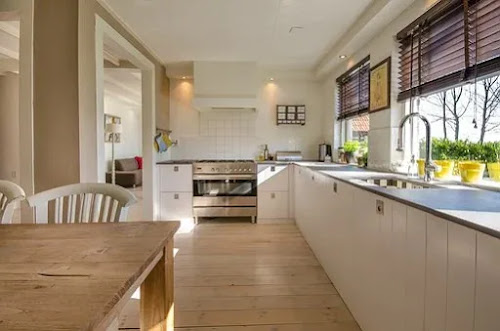How to Get Rid of Termites from Hardwood Floors
- Sep 21, 2021
 Do you suspect that a termite infestation is damaging your hardwood floor? If you are right, then it could be a serious issue as termites can eat away the floor. Although termites generally prefer to feed on softwood floors or support structures like floor joists, they can damage hardwood parts in a house as well, including hardwood floors.
Do you suspect that a termite infestation is damaging your hardwood floor? If you are right, then it could be a serious issue as termites can eat away the floor. Although termites generally prefer to feed on softwood floors or support structures like floor joists, they can damage hardwood parts in a house as well, including hardwood floors.
Besides hardwood floors, building foundations, walls, and ceiling beams are also at risk of a termite infestation. Especially if there is a colony of termites living and thriving underneath your house, they can make the structure hollow and fragile.
In this post, we will discuss why termites pose a massive threat to your hardwood floor, what the signs are and how to get rid of termites.
What Are the Signs of Termite Attack on Hardwood Floors?
Termites do infest hardwood floors as much as soft floors and structures. However, it takes longer to damage hardwoods. When that does happen, there are some apparent signs that homeowners often overlook. If you do not notice the signs anytime soon and leave it uncontrolled for a few years, termite colonies can destroy the hardwood floors. Repairing the damage or replacing the floor would be costly.
Here are some of the signs to be aware of to find out if there is a termite infestation in your home:
- Mud Tubes/Leads: Termites usually, build mud tubes/shelter tubes or leads in moist places outside the house to access the interiors through tunneling.
- Frass: This is termite feces that you may find near or along wall cracks which are used by termites as exits. Frass pellets have a pointed shape on one end.
- SquishyWood Flooring: If parts of your hardwood floor get soft or squishy and you are able to easily penetrate it with a sharp tool, it is likely to be a termite infestation issue.
- Termite Swarming: This usually happens in the evenings as termites are attracted to lights, such as lamps or bulbs. After that, termites typically shed their wings and you will see discarded wings around your house. These are visible signs of an infestation.
- Empty or Hollow Sound: If tapping your hardwood floor gives an empty or hollow sound, it could be termite damage. The floor produces a hollow sound due to the cavities that termites leave.
- Detached or Raised Floorboard: If termites eat through the joists and subfloor of your hardwood floor, it will raise or detach the floorboard.
How Can You Keep Termites off Hardwood Floors?
It is possible that your house has been suffering from termite infestation for a long time and the termites have been damaging your hardwood floors. The only way to find out if termites are still there is to look for fresh feces. However, this can be misleading since termite feces are dry. After cleaning up, if feces surface again, it is a telltale sign that there is still an active termite colony.
There are various chemical and non-chemical solutions available to treat termites. If you hire a professional termite control company, they can eliminate these insects through methods like baiting or by using liquid pesticides. Termite controllers set a bait outside the colony’s entry and exit points. Termites die once they feed on it. In the second method, termite experts spray liquid pesticides on the soil around the house to kill termites. However, regular chemical solutions have not been effective. It is preferable to seek a termite control firm that uses state-registered non-repellant chemicals to eliminate termites.
Termites can inflict serious damage on your hardwood floors and other wooden structures. If you have noticed signs of a termite infestation, it is best to contact a reputable termite control services provider instead of trying DIY ways. Termite control experts will apply chemicals or powders to treat termites effectively.
Besides killing all the termites that invade your space, a leading termite control firm can also inspect and identify additional structural issues due to termite damage and submit a report to you on the same. For more details, call (888) 322-8889 or send an email to info@hitechtermite.com, and we will be happy you assist you.





